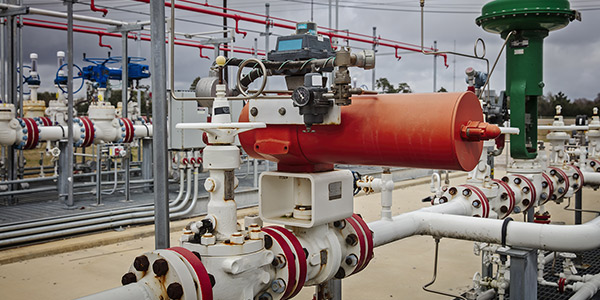Colorado’s Air Quality Control Commission last week enacted the nation’s strictest rules around methane emissions from the pneumatic controllers used in oil and gas production facilities.
The AQCC unanimously approved revisions to Regulation Number 7 regarding the devices during a virtual hearing on Thursday. The hearing addressed issues bifurcated from the December 2020 rulemaking on Regulations 3 and 7 concerning the state’s Ozone State Implementation Plan.
Conservation groups, local governments and industry leaders joined forces to create and present a proposal endorsed by all stakeholders involved.
“We are pleased to be able to say today that after months of negotiations, we have reached a historic compromise proposal. … We’re excited to report that we’ve resolved all of the outstanding issues related to the rule language,” said Earthjustice attorney Robin Cooley, who represented the conservation groups during the hearing.
Pneumatic Devices and Past Policy
David McCabe of the Clean Air Task Force described the role of pneumatic devices in current oil and gas production to the commission. He said the devices monitor process parameters — metrics like temperature, pressure and liquid level — and use pressurized gas to send signals to regulate these parameters.
“Pneumatic controllers have long been identified as a very significant source of methane and VOC [volatile organic compound] emissions because when they use compressed natural gas to operate, they vent that gas and the methane and VOC it contains into the air.”
The devices are designed to emit natural gas during normal operations, but equipment malfunctions can cause leaks leading to even higher levels of emissions. In 2017 the AQCC adopted a “find and fix” program that required oil and gas operators to regularly inspect pneumatic controllers using an approved instrument monitoring method to determine if they were operating properly. It then adopted provisions to strengthen this program in 2019.
But “find and fix” was created to reduce excess emissions from these devices rather than eliminate them altogether.
“The compromise proposal requires the use of non-emitting controllers at new facilities, and it would make Colorado the first state in the country to require retrofits of existing oil and gas well production facilities and compressor stations with non-emitting controllers,” Cooley said.
Non-emitting controllers serve the same function as their emitting counterparts, but they function using pressurized air or electricity, McCabe said. He said that in 2019, more than 100,000 emitting controllers were producing methane in Colorado, but the new rulemaking states that any well production facility or gas compressor station built after May 1 may only use non-emitting devices. It also requires operators to retrofit devices at older facilities if they plan to undertake large projects that would increase their emissions production.
Industry Requirements
Colorado’s Joint Industry Working Group presented the proposal’s requirements for existing oil and gas facilities. Group representative Jennifer Biever said current operators will have to submit a company-wide plan on how they intend to reduce or phase out emitting controllers.
“The reason for the company-wide plan is that it affords operators compliance flexibility really to identify those facilities where retrofit of emitting controllers is feasible — both economically and technically — and more effective in achieving reductions of emissions,” Biever said.
According to the presentation, operators can reduce the use of emitting controllers by converting them to non-emitting controllers or by “plugging and abandoning an existing well production facility.”
Operators should be able to show significant reductions in the use of emitting controllers by May 2023.
Exemptions
Environmental Defense Fund representatives presented on exemptions to the rulemaking.
“These exemptions are designed to minimize the use of emitting controllers while permitting their use for necessary and reasonable purposes,” Sarah Judkins said.
The three exemptions are for emitting controllers:
- necessary for “safety or process purposes”;
- used in “temporary or portable equipment”; and
- used as “emergency safety devices or for artificial lift” if located on a distant wellhead.
Unanimous Endorsement
After each group presented, the commission commented and asked for further clarification. Commissioners complimented the proposal, acknowledging how rare it is for stakeholders to reach a compromise of this scope.
“It really is a remarkable achievement that I know took a lot of work. … As a commissioner, it’s really nice to have something come forward with no outstanding issues,” Commissioner Curtis Rueter said.
To close, Commissioner Elise Jones, hearing officer for the proceeding, entertained a motion to approve the proposed revisions, which the commission unanimously endorsed.



